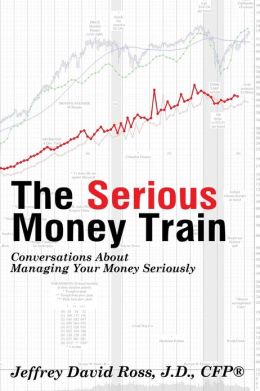
Courtesy of my long-time mentor, Nick Murray, I received a refresher course in the most basic of economic subjects: supply and demand. What made the topic interesting was its focus on oil and gas prices, whose recent decline has allowed us all to keep more money in our pocket when visiting the gas pump.
It was just this past June that oil prices were over $100 per barrel and gas was $4.00 per gallon. As I write this, oil is below $50 per barrel and gas is approaching $2.00 per gallon (and below $2.00 is some locations).
You may remember that not long ago we were warned about the coming peak-oil catastrophe when oil prices were rising toward their highest prices. The storyline went something like this: prices were rising, the Saudis were over-estimating their reserves, supplies would then diminish, and prices would skyrocket.
Today, the storyline has flipped 180 degrees: prices have been falling, we have a glut of oil worldwide, supplies will continue to expand due to new technologies, and prices will continue to fall.
However, BOTH storylines are false because they both assume the repeal of a basic economic principal about the pricing of commodities, such as oil. Quoting Mr. Murray, “this law is simple, and quite beautiful in its simplicity. It states:
Supply varies directly with price; demand varies inversely with price.
Let’s translate:
- Supply increases when the price increases; supply decreases when the price decreases. Why? As the price increases more sellers try to bring more supply to market to take advantage of higher prices. When the price decreases, profitability to sellers declines and they begin to cut back on production and innovation.
- Demand, however, goes in the other direction: as price increases demand decreases; as price decreases demand increases. Why? As price increases buyers are either priced out of the market, begin conserving the commodity, and/or look for alternatives. As price decreases, more buyers are able to buy more of the commodity, and additionally, conservation efforts become less important.
So, just as pundits were incorrect when they thought rising prices would skyrocket beyond reach, they are just as wrong about falling prices dropping to below $1.00 per gallon.
What will cause the price of gas to stop falling? How is this current trend likely to play out? According to our principal on the previous page, as prices continue to fall two things will happen: 1) production will curtail, as marginal sellers fail due to declining profits and exploration/development is cut back, and 2) demand will increase as more consumers will buy more oil and gas.
Then what happens? There will come a point where demand grows large enough to overwhelm the then-diminishing supply, causing more sellers to re-enter the market to meet unmet demand, increasing supply, thereby causing prices to bottom out and begin their inevitable increase–again.
This is the way commodities work. They follow a logical, intuitive, common-sense cycle.
Jeff
FORWARD LOOKING STATEMENT DISCLOSURE
As a Registered Investment Advisor, one of our responsibilities is to communicate with clients in an open and direct manner. Insofar as some of our opinions and comments are based on current advisor expectations, they are considered “forward-looking statements” which may or may not be accurate over the long term. While we believe we have a reasonable basis for our comments and we have confidence in our opinions, actual results may differ materially from those we anticipate. You can identify forward-looking statements by words such as “believe,” “expect,” “may,” “anticipate,” and other similar expressions when discussing prospects for particular events and/or the markets, generally. We cannot, however, assure future results and disclaim any obligation to update or alter any forward-looking statements, whether as a result of new information, future events, or otherwise. Further, information provided in this letter should not be construed as a recommendation to purchase or sell any particular security.
The Planner’s Edge®: TM & copyright 2013. All rights reserved. No part of this publication may be reproduced in any form, or by any means whatsoever without written permission from the publisher. Serious Money TalksTM is a trademarks of The Planner’s Edge®. If you would like further information about the services of The Planner’s Edge®, please call 206-232-4500 or 1-800-735-7302. Email: info@theplannersedge.com.

